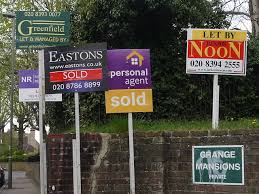29 October 2020
Stamp Duty Blunder
Putting out fire with gasoline.
By Frank O’Nomics

How things change. Isn’t it ironic that, in this second financial crisis of the millennium, banks are trying to offset reckless action by a government?
Chancellor of the Exchequer Rishi Sunak’s stamp duty holiday, which saves homebuyers up to £15,000, has, together with the pent-up deal-flow from the lockdown, fuelled a huge demand for houses. Banks on the other hand are desperate not to be the cheapest deal on the market, partly because they can’t handle the volume of deals, but also because they fear the consequences of the economic down-turn when it hits.
The major concern is not that people are being forced to pay up – but that many will not be able to pay back. Steep rises in unemployment invariably spell danger for property prices. In 1993 when unemployment rose to 10.5%, house prices fell by 20%. In the financial crisis of 2008 unemployment “only” rose to 8%, yet house prices still fell by 20%. So far this year unemployment has only risen from 4 to 4.5%, but there seems little doubt that redundancies will accelerate, particularly, as at the middle of this month, there were still 1.7 million on furlough. There is a wide range of estimates of how high unemployment will go, but it could be as high as (on the Resolution Foundation’s most extreme scenario) 14.3%. Yet despite this, house prices, according to Halifax, rose by 7.3% year-on-year in September – the fastest rate since 2016.
Something does not compute. Heavy demand and limited short-term supply are pushing up prices. The deal-flow that was constrained by the lockdown would have been temporarily positive for prices anyway, but the rush to save stamp duty has exacerbated the pressure. The move has been sufficiently extreme to ensure that the stamp duty saved has been more than sacrificed in higher prices. The average saving is £4,400, with the maximum £15,000. The average house price in August was a record high £239,136. The rise in house prices in the 3 months to September (3.3%) was more than enough to negate the stamp duty saving. Yet Rishi Sunak has said that many are “planning to spend the savings from the tax break on home improvements and renovations… boosting business and protecting jobs”. There is some creative accounting going on here.
Once the stamp duty holiday ends the property market could become very quiet, and the clearing price for houses could settle at a much lower level. In the meantime, the Chancellor has missed out on a much-needed boost to the Exchequer. Not all of the recent and prospective deals would have happened without the incentive, and not all would yield the full 3% – but the deal total suggests £2-3bn might have been raised.
Banks in the meantime have been trying to inject a healthy dose of reality into proceedings. They have withdrawn many low deposit mortgages and, despite the Bank of England’s base rate being at a record low of 0.1%, they have been putting up interest rates. In the last few weeks Halifax, TSB, Nationwide, Nat West, Barclays, Santander, Virgin Money and both the Yorkshire and Chelsea Building Societies have put up their mortgage rates. Some of these moves are down to capacity constraints but, as ever, banks only really want to lend to those that don’t need the money. Many will argue that the low level of interest rates is sufficient to counter the usual impact of rising unemployment on house prices. The evidence is to the contrary, and already Zoopla are reporting that property sales are falling in the areas most exposed to the current economic downturn.
According to Zoopla, homebuyers are rushing to complete some 418,000 deals, with a value of £112bn, before the end of the stamp duty holiday – that is 140,00 more than this time last year. The system cannot cope. There is a real danger that as many as 325,000 purchases are agreed but don’t complete before the 31st March deadline. This will lock buyers into inflated prices, with none of the expected savings in transaction costs. The worst of all worlds.
In short, the stamp duty holiday does not seem to have saved much money for anyone. It has fuelled the inflation of house prices, with the affordability issue for first time buyers deteriorating rather than being alleviated. In addition, it has cost some much-needed tax revenue from deals that would have happened anyway. Hopefully the correction in property values will be modest, with few houses being repossessed. If that proves to be the case I doubt anyone will congratulate the banks for their help in suppressing current demand, but maybe some of those in government should.

